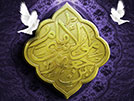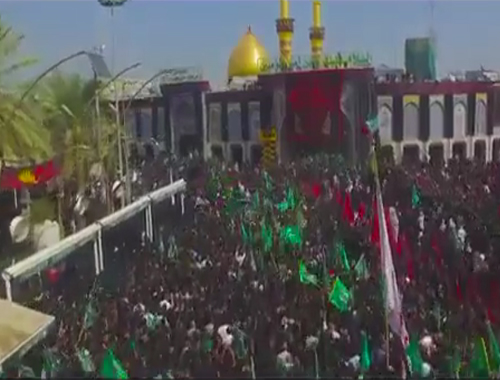4. The Prophet’s Migration (Hijrah)
- Details
- Hits: 2374
4. The Prophet’s Migration (Hijrah)
Till the thirteenth year of his mission, the Prophet called the people of Mecca to Islam, and stood firm when faced with the persecutions of the Quraysh. Eventually he got to know that the Quraysh had hatched an incredible plan to kill him, so he put Imam ‘Ali (a.s.) to sleep in his bed in his place and left Mecca at night; he hid in a cave, and then migrated from there to Medina.
The hijrah of the Prophet opened an entirely new chapter in the history of Islam from which a stimulating and surprising lead forward was made. For this very reason, the hijrah of Muhammad (s.a.w.) became the beginning of the calendar of the Muslims.
The two tribes of Medina, Aws and Khazraj, were bitter enemies of each other for generations. But with the presence of the Prophet of Islam in Medina, they became brothers for life in the shadow of the teachings of Islam, and blessed sincerity and cordiality was established between them. The example of Muhammad’s behaviour, his spiritual and moral superiority, and the natural aspect of his pure religion, caused the people to come to Islam by the score, and in the end to accept it.
The Prophet of Islam was from the people and with the people, and did not maintain a distance from them. He shared with them in their gains and losses. He firmly criticised oppression and aggression, which he refrained from and prevented. He set forth all the principles which were, in the light of Islam, effective for the development of the position of women, and put an end to the tyranny they had been subjected to previously, but he also vehemently fought against their unchastity and licentiousness, for he wanted them to attain real development on the basis of the true principles of Islam.
He defended the rights of slaves, and had comprehensive programmes for their freedom. The Prophet of Islam created a society where black and white, rich and poor, great and small, were all equal and could enjoy the benefits of being human beings. In such an atmosphere, there could be no question of ‘racial discrimination,’ for there was a much higher basis in virtue, knowledge, piety, human values and ethical greatness.
* * *
This lesson has been adapted from Dar Rah-e Haq,
The Roots of Religion (1981) Qum, Iran.











